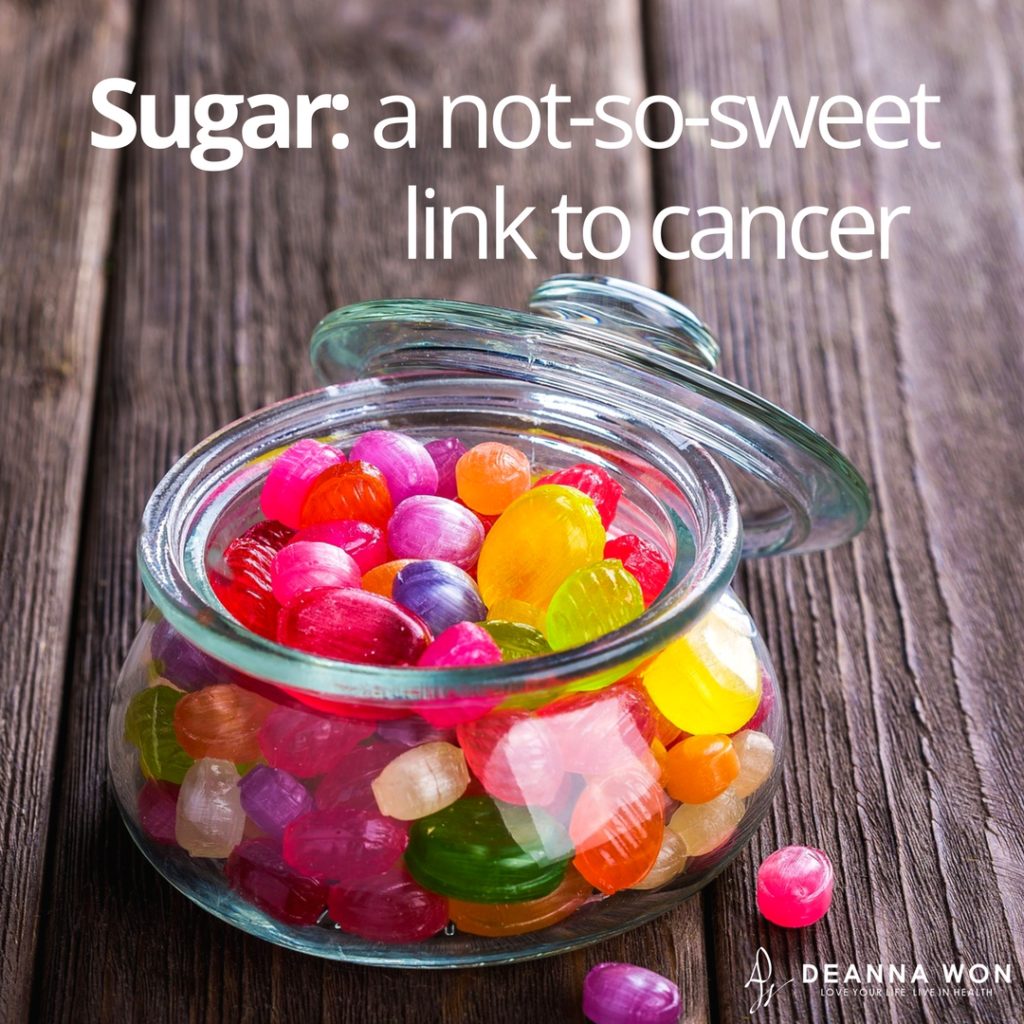With the holidays right around the corner, many people may find themselves becoming less mindful of what they’re eating. As the days get shorter, and the weather gets colder, the season of sugar is upon us. Beginning with the yearly candy trick-or-treating ritual to all the end of the year holiday dinners and festivities, we are bombarded with candy, cakes, cookies, and pies. Neighborhood children begin to sell holiday fundraising holiday treats door-to-door; gift catalogues are hitting your mailbox, filled with images of baskets containing chocolates, truffles, and peppermint sticks; and every bakery and coffee shop around the country pumps out scents of pumpkin spice to entice you into their places of business to buy their seasonal flavored beverages and pastries.
Desserts are used in our celebrations year-round as sugar is pleasant to the taste, gives people a temporary “feel-good” high, and provides a sense of comfort. So, how is it that something that we can easily purchase every day, that makes us feel so good, lead to an increased risk of cancer?
We all have cancer cells roaming in our bodies. However, with optimal nutrition and cell function, these cells do not have the environmental conditions to proliferate into harmful malignant tumors. Sugar can cause these cancerous cells to expand and grow by changing the metabolic function of the cells, increasing a person’s body mass, and suppressing the immune system.
How does sugar change a cell’s metabolic function?
In order for all cells to produce the energy required to carry out essential functions, they undergo a process called cellular respiration. There are two forms of cellular respiration – aerobic respiration, where oxygen is present, and anaerobic respiration. Eukaryotic cells, complex cells with multiple internal organelles found in multicellular organisms, utilize aerobic respiration when oxygen levels are sufficient. Cells can produce much more energy in the form of ATP during aerobic respiration than they can with anaerobic respiration. However, if oxygen levels are low, these cells will resort to anaerobic respiration.
The first step in cellular respiration is glycolysis, a process where sugar is enzymatically broken down into energy or metabolized. During anaerobic respiration, where oxygen isn’t present, energy is produced by sugar fermentation where pyruvate, a product of glycolysis, is used to produce ethanol and NAD+ (a requirement for the glycolysis process) or lactate and NAD+. In unhealthy cells, that haven’t been properly nourished and oxygenated, the cells begin to rely less on aerobic respiration, as oxygen is scarce, and shift towards anaerobic respiration, or fermentation, to produce energy. It’s during this process that cancer cells can proliferate in the body.
As cancer cells grow, because they derive energy less from oxygen, they survive by deriving their energy from sugar. According to Dr. Murray Susser, MD, a recent inductee into the Healthy Doctors Hall of Fame, “Cancer cells consume sugar about 19x faster than healthy cells.” Therefore, by increasing, and in some cases maintaining, high sugar consumption levels, you are providing the resources necessary for cancer cell proliferation to continue in the body.
Dr. Otto Warburg, Nobel Prize winner for his research on the cause of cancer back in the 1930’s, stated, “Cancer, above all other diseases, has countless secondary causes. But, even for cancer, there is only one prime cause. Summarized in a few words, the prime cause of cancer is the replacement of the respiration of oxygen in normal body cells by a fermentation of sugar.”
According to Yasuhito Onodera and Mina J. Bissell, authors of the NCBI (The National Center for Biotechnology Information) article, Increased sugar uptake promotes oncogenesis via EPAC/RAP1 and O-GlcNAc pathways, studies on cancer cells and sugar were able to provide further evidence of how tumors reacted to an increase and decrease in glucose levels. In a study cited in this article, the introduction of glucose to non-malignant cancer cells in human breast tissue led to the upregulation of oncogenic signaling. However, when glucose was forcibly reduced from malignant breast cancer cells, the result was a reversion of the malignant cells and a downregulation of the oncogenic pathways. This study further proved that glucose greatly contributes to the growth of cancer cells.
How does sugar lead to obesity-related cancers?
In addition to how sugar fermentation furthers the progression of cancerous tumors, sugar also leads to cancer through obesity. A study conducted by a working group of the International Agency for Research on Cancer, part of the World Health Organization, concluded that there is solid evidence that obesity places a person at risk for at least thirteen different types of cancer. According to Dr. Graham Colditz, chairman of this working group, 42% of all new cancer diagnoses are comprised of these thirteen types of obesity-related cancers.
On a daily basis, the average American consumes 300% more sugar than the body requires. Added sugars are not only found in sugary foods like candy and soft drinks, they are also found in condiments, salad dressings, sauces, and processed fruit juices. Not only does sugar contribute to a widening waistline, excessive sugar intake causes the pancreas to produce more insulin than it requires (a process that is supposed to bring the blood-sugar levels back into balance by removing glucose from the bloodstream and into the cells for energy). With these high levels of insulin, our body is stimulated to create cytokines, pro-inflammatory chemicals which can lead to insulin resistance. Diabetes and obesity can result from insulin resistance.
Fat cells also release hormones and proteins into the bloodstream. Too much fat can change the levels of estrogen and testosterone in the body, which can increase the risk of cancer. People with excessive weight tend to have much more insulin present in the body. Where fat is carried on the body contributes to an increased risk of certain cancers. For example, those with “apple shapes” are at an increased risk for kidney, bowel, pancreatic and breast cancers.
Additionally, high amounts of sugar in the blood can cause the body to create more free radicals. As you may have read in my article, Eat your way to improved cell health, high levels of free radicals can lead to oxidative stress which can trigger cell damage and cell death. This damage then allows the free radicals to stimulate an immune response which can lead to inflammation of the blood vessels leading to the heart. When there is an imbalance of free radicals to antioxidants, there is an increased risk of cardiovascular disease and cancer.
How does sugar impact the immune system?
Sugar can suppress the immune system, preventing your body from fighting off disease. By subduing a key immune response called phagocytosis, where invading microorganisms are destroyed, moderate sugar consumption has been shown to decrease this important immune response by almost 38% one hour after sugar ingestion. In fact, it may take the immune system up to five hours to completely recover after a moderate amount of sugar consumption. As most diseases begin with chronic inflammation, increased sugar consumption further perpetuates the proliferation of cancer as it is an inflammatory substance in the body.
Your immune system is also affected by your blood’s pH level. Cancer cells thrive in acidic environments. In order for our bodies to effectively transport oxygen through our blood, our blood must be at a pH that falls within a fairly narrow range of between 7.0 to 7.4. If you’re following the Standard American Diet, consisting of processed foods with high levels of sugar, your body can become more acidic. Sugar has a pH value of 6.4, which is 10 times more acidic than the ideal alkaline blood level since the pH scale is logarithmic. As the acidity levels of the blood increase, the cells are not able to transport as much oxygen throughout the body. Because your life depends on maintaining proper blood pH, your body will go to extreme measures to maintain this pH balance. It will attempt to neutralize the acidity by pulling minerals, like calcium, from the most alkaline parts of your body: your bones and your teeth. If this occurs chronically, it can lead to osteoporosis and dental issues. An acidic environment leads to oxygen deprivation which leads to cellular respiration through fermentation. In order to maintain a healthy pH, your food consumption should consist of 20% acidic foods and 80% alkaline.
For some, giving up sugar may be a difficult process. If this is the case for you, I encourage you to read my article, Sugar: A big & avoidable inflammatory culprit, for healthier alternatives to appease your sweet tooth. If you have been diagnosed with cancer or want to optimize your health to aid in the prevention of the onset of cancer, I encourage you to remove sugar from your diet and find healthier whole foods that can satiate your hunger and cravings.
Only a few decades ago, we were able to survive without the copious amounts of sugar that people in today’s environment consume on a daily basis. Re-examine your diet and the foods that you choose to consume. A no-to-low sugar diet can help your body function optimally in the way that it was intended.
Ready to make your health a priority? Contact me here to schedule your consultation.
Sources:
https://www.sciencedaily.com/releases/2017/10/171013103623.htm
https://beatcancer.org/blog-posts/5-reasons-cancer-and-sugar-are-best-friends/
Sugar Doesn’t Just Feed Cancer Cells it May Even CREATE Them
https://www.reference.com/science/raw-materials-needed-cellular-respiration-a01255403df4effd?qo=contentSimilarQuestions#
http://hyperphysics.phy-astr.gsu.edu/hbase/Biology/celres.html#c3
http://hyperphysics.phy-astr.gsu.edu/hbase/Organic/nad.html#c1
http://www.obesity.org/news/press-releases/us-adult
Understanding Blood pH And It’s Critical Role In The Prevention Of Cancer
Average Person Consumes 300% more Sugar Daily than ‘Recommended’
http://www.cancerresearchuk.org/about-cancer/causes-of-cancer/bodyweight-and-cancer/how-being-overweight-causes-cancer

